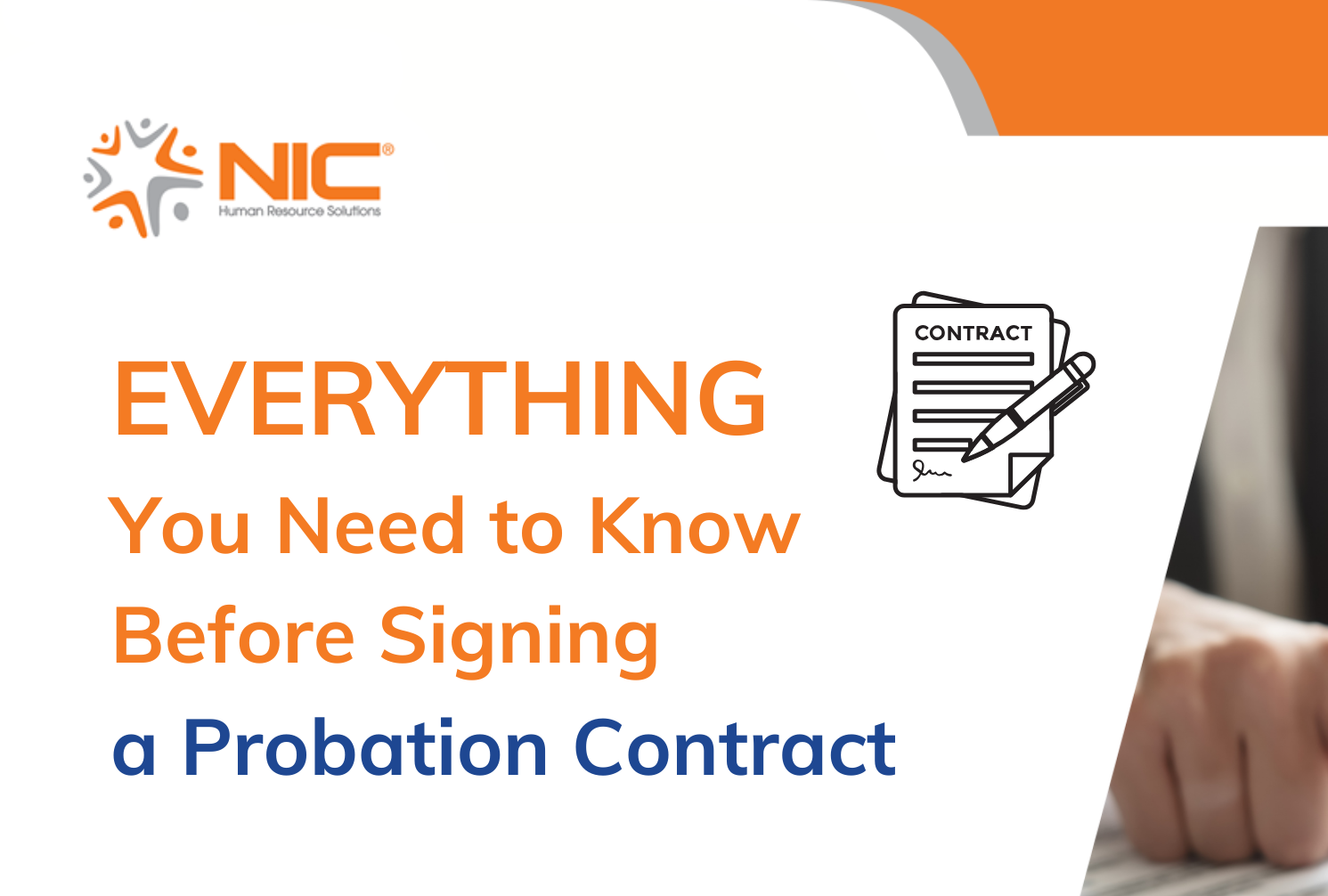Everything You Need to Know Before Signing a Probation Contract
15/11/2024
When starting a new job, signing a probation contract is an essential part of the process that establishes the initial relationship between the employer and employee. This contract not only outlines the terms of employment during the probation period but also serves as a legal safeguard for both parties. If you’re about to sign a probation contract, here’s everything you need to know to ensure your rights are protected and fully understand the obligations that come with it.

1. What is a Probation Contract?
A probation contract is a formal agreement between an employer and an employee outlining the conditions of work during the probation period. According to Article 24, Clause 1 of the 2019 Labor Code, employers and employees may agree on the probation terms within a labor or a separate probation contract.
The contract specifies key details, such as the salary, working hours, benefits, and responsibilities of the employee during the probation period. Typically, it serves as a precursor to a formal employment contract, allowing both parties to assess whether the working relationship will be beneficial before making a long-term commitment.
2. What Information Should a Probation Contract Contain?
Under Article 24, Clause 2 of the 2019 Labor Code, a probation contract must include the following key components:
- Employer’s name and address, as well as the name and title of the person signing on behalf of the employer.
- Employee’s full name, date of birth, gender, residence, and identification information (citizen ID card, passport, etc.).
- Job description and work location.
- Working hours and rest periods.
- Work safety and protective equipment (if applicable).
Example: A probation contract for a software developer may include details about expected work hours, project deadlines, specific tasks to be completed, and the criteria for evaluating performance during the probation period.

3. Why Is It Important to Sign a Probation Contract?
A probation contract holds legal weight and is essential for protecting the employer’s and employee’s rights. Here are several key reasons why this contract is important:
- Legal Protection: The contract serves as a legal foundation to protect your rights, including wages, attendance bonuses, and leave entitlements.
- Clear Responsibilities: By outlining responsibilities clearly, the contract helps prevent disputes or misunderstandings about job roles, ensuring smooth operations during the probation period.
- Stability: Probation contracts contribute to the stability of the employment relationship, helping companies retain talent and providing employees with a sense of security.
- Risk Mitigation: Signing this contract minimizes the risk of legal disputes, ensuring that both parties adhere to the agreed terms.
4. The Process of Signing a Probation Contract
The process of signing a probation agreement typically involves three main steps:
Step 1: Negotiation
Both parties will discuss the terms of the contract, share feedback, and negotiate details such as salary, working hours, and duties. The goal is to reach a mutual agreement before moving forward.
Step 2: Drafting the Contract
The HR department or relevant team will draft the contract, ensuring all agreed-upon terms are included. This can be done using a standard company template or a customized version for specific roles.
Step 3: Signing the Contract
Both the employer and employee sign the contract, which may be in printed or electronic format. The contract should be signed in two copies, with one copy retained by each party for future reference.
5. Is Personal Income Tax (PIT) Applicable During the Probation Period?
Yes, employees are required to pay personal income tax (PIT) during the probation period if their monthly earnings exceed 2 million VND. According to Point i, Clause 1, Article 25 of Circular 111/2013/TT-BTC, companies must withhold 10% PIT from the employee’s salary if their income exceeds this threshold, even during probation.
Example: If you are on probation and earning 3.5 million VND per month, the company will withhold 10% of your total income (350,000 VND) as PIT. You will receive a net salary of 3.15 million VND after the tax deduction.

6. Important Points to Consider Before Signing a Probation Contract
Before signing a probation contract, keep the following tips in mind to protect your rights and avoid potential pitfalls:
- Read the contract carefully: Take time to review each clause to ensure you fully understand your rights, obligations, and any benefits offered.
- Don’t rush: Avoid signing the contract under pressure. Make sure you are comfortable with all the terms before committing.
- Seek clarification: Ask the employer to clarify if you encounter any ambiguous language or unclear provisions. It’s common for some contracts to contain legal jargon, so make sure everything is transparent before you sign.
Conclusion
Signing a probation contract is a critical step for both employees and employers. It provides legal protection, ensures clear communication of responsibilities, and helps foster a stable working environment. By understanding the key elements of the contract and the importance of taxes during the assessment period, you can confidently navigate this stage of your employment journey.
If you’re preparing to sign a probation contract, consult with your HR department or legal advisor for any additional guidance.
For contact and support:
Facebook: NIC Global – Human Resource Solutions
Linkedin: NIC Global Sourcing JSC
Website: www.nicvn.com
Email: info@nicvn.com
Hotline: 0981.23.43.76
Address:
- Hanoi Office: No. 3A Thi Sach, Pham Dinh Ho Ward, Hai Ba Trung District, Hanoi, Vietnam
- Ho Chi Minh City Office: Dakao Center Building, 35 Mac Dinh Chi, District 1, Ho Chi Minh City, Vietnam
See more:
Payroll service
Staffing service
EOR service





